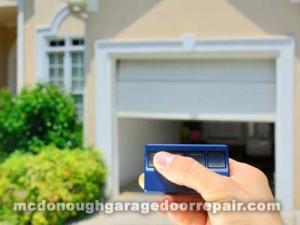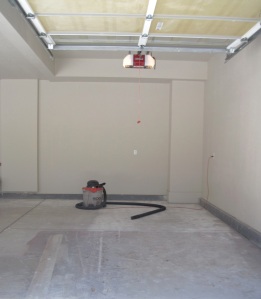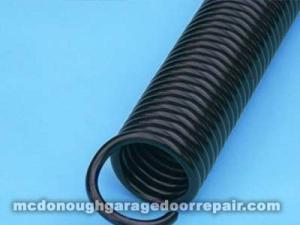 If your garage doubles as a shop, game room, or office, then you ought to have an insulated garage door for your home. When your garage is properly insulated, you’ll achieve the benefit of maximized thermal efficiency with optimal air infiltration reduction. No matter what the weather is outside, a well-insulated garage will give you a workable garage space inside all year round, providing superior comfort. You’ll keep as much cold out as possible during winter, and as much heat out as possible during summer.
If your garage doubles as a shop, game room, or office, then you ought to have an insulated garage door for your home. When your garage is properly insulated, you’ll achieve the benefit of maximized thermal efficiency with optimal air infiltration reduction. No matter what the weather is outside, a well-insulated garage will give you a workable garage space inside all year round, providing superior comfort. You’ll keep as much cold out as possible during winter, and as much heat out as possible during summer.
Cold Weather Protection
Should the temperature ever drop to below freezing, if you have winterized your garage, you’ll save money and time overall.
Insulate your garage walls. For correct installation of insulation in your garage, carefully study the installation guide, and be sure you select the appropriate insulation thickness for your garage’s walls. Some typical mistakes people make are: not securely fastening the batt insulation, cutting it too long or too short for the location, or not supporting it properly. Keep in mind that insulation must fit snugly; nevertheless, don’t jam it in too tightly.
Insulate your garage. If the garage interior were ever to grow too cold, it would damage not only your vehicle, but also anything you keep in storage there. Are your washer and dryer in the garage? In freezing temperatures, if you have a washing machine with any water left in the lines or the pump, it can freeze and crack. The same risk is possible with your vehicle’s fuel gels, which can freeze inside the combustion engine. Another problem that can come up is that paint can separate and become ruined in a prolonged stretch of freezing temperatures.
Insulate the garage door. A great variety of products is available for insulating your garage door, including a kit specifically designed for doing so. The options for successful insulation include foam board, reflective barriers, and Fiberglass batt insulation.
Regardless of which option you decide on, first you’ll have to cut the insulation to fill the garage door panels. Next, fasten them with adhesive and make sure each remains fixed in place. If your garage door is not the type with recessed panels, the entire project will become easier.
For most folks, insulating your garage by yourself is too overwhelming a task. If it all seems too much of a bother, then your best bet will be to hire a professional to install a modern-designed insulated garage door for you. If you are located any place in McDonough, Georgia, consider hiring a trusty expert from a reputable garage door company such as McDonough Garage Door Repair.
Repair or replace the weatherstripping. This will create a very effective seal between the garage door and the garage door opening. If you feel a cold draft leaking into the garage between the frame and the door, then remove any of the existing weatherstripping if it’s cracked or brittle. Take off any residual sealant with a pry bar and putty knife or flat scraper. Make the surface as clean and smooth as you possibly can. After you remove the old weatherstripping completely, measure so you can apply the new weatherstripping. To align it, close the garage door and make sure the rubber flap flattens slightly against it. You’ll have a good seal and the garage door will operate without any trouble.
Install a unit heater in the garage. Insulation and weatherstripping effectively guard your garage from extreme winter weather; but if you’d like to be extraordinarily toasty, you can add a unit heater. (On the other hand, if you have only mild winters, then rather than insulation or weatherstripping, an electric unit heater is probably all you’ll need, since you’ll want heat only once in awhile.) This is a great way to heat your garage with nominal cost and space requirements. Gas-fired units are generally cheaper to operate overall, but they’re more difficult to install since they require exhaust venting and a gas supply. An electric model, is easier to install, but more expensive to operate. A good electric choice is the mini-split heat pump, which provides remarkably efficient heating and cooling for your garage with only a 3″ hole through an exterior wall.
Hot Weather Protection
In the summer months, the main goal is to increase the airflow in your garage. The following measures are worth considering:
Wall insulation keeps out summer heat economically. Use wallboard or other paneling to encapsulate the material. You’ll prevent teenagers, toddlers, and pets from tearing things out.
Leave the garage door slightly open, about a foot from the ground, and add a fan.
Attach an adjustable rollaway awning onto the sunny side of the garage. You’ll be creating shade to cool things off.
Insulate the garage ceiling. If you use paper-backed batt insulation, ceiling wallboard isn’t required. Install the insulation using staples, paper side down, or keep the insulation in place with netting. You can also use staples to fasten the netting. Experts advise that you do both.
Plant a tree nearby. A hardwood or deciduous tree is an affordable and aesthetic way to cool your garage in summer. (It will even keep the garage warm in winter.) Plant the tree between the garage and the position the sun takes during the hottest part of the day. The tree’s leaves will provide welcome shade. (In winter, the bare branches will let sunlight through to provide warmth.)
Install a stationary vent on the roof. This is an inexpensive way to make an exit point for hot air trapped in the garage attic. Or, if you can spend more, install a mechanical exhaust system, in which fans will draw cooler air from the garage into the attic. This will cool the attic and also the space below.
Insulate the garage overhead door. For a metal garage door, add a layer of rigid insulation 2″ thick, attached to the inside of each panel using contact cement. Or, an insulated sectional overhead door is an ideal alternative.


Aricle source here:
HOW TO PROTECT YOUR GARAGE FROM EXTREME TEMPERATURES





